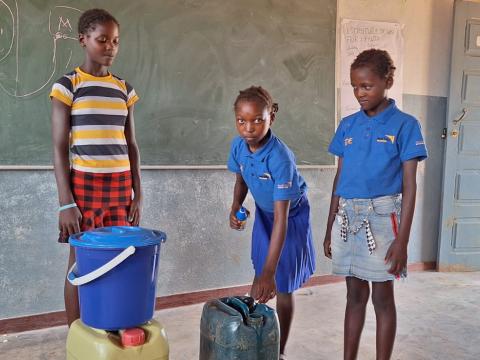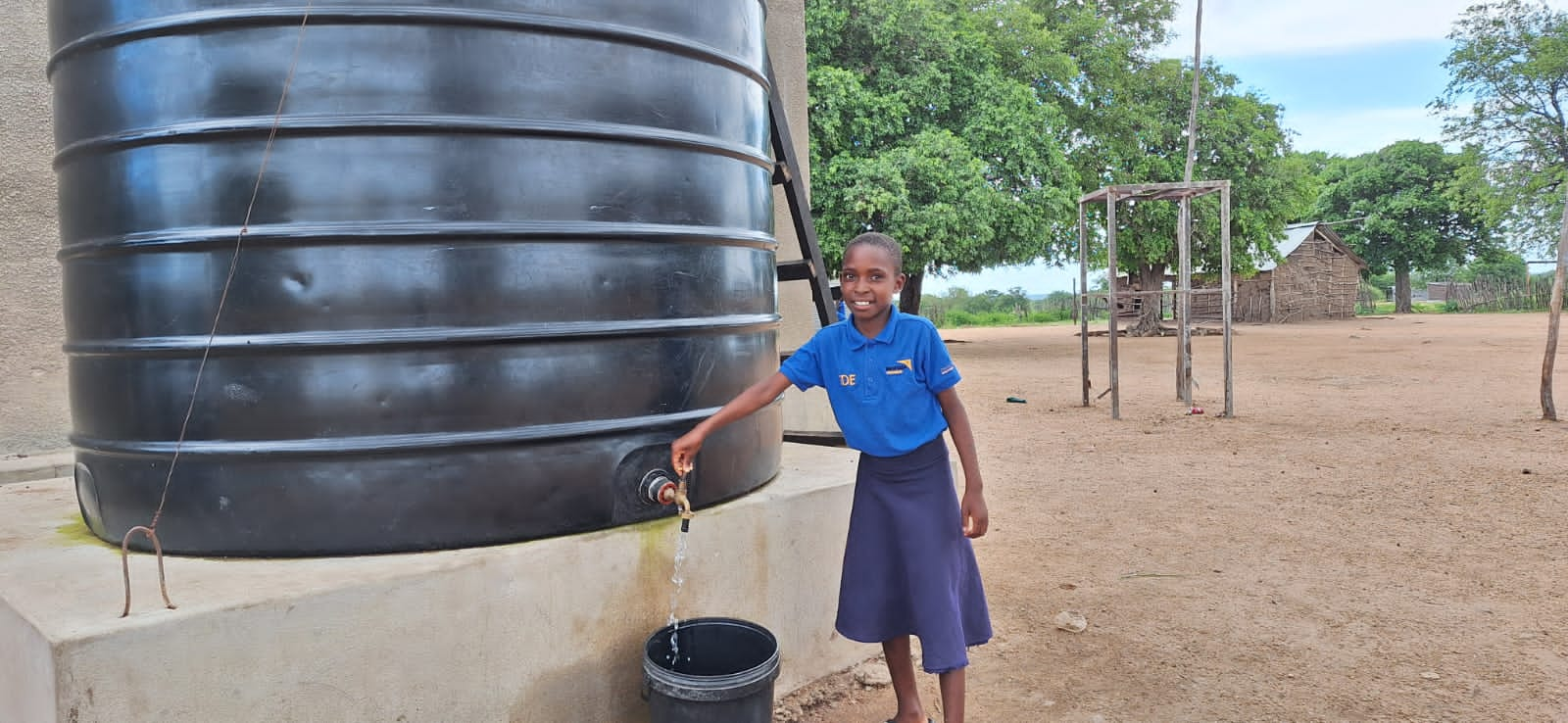Mozambique- Water And Hygiene Clubs Leading New Narratives in Schools and Communities in Gaza Province

By: Álvaro Malamba, Communications and Advocacy Coordinator
Inadequate toilets and poor water supply are often the characteristics of many of the Mozambican schools in rural areas. These schools that are generally overcrowded and they deal with limited options such as absence of gender-segregated toilets discouraging girls from attending school due to lack of reliable water sources which are essential for handwashing and maintaining hygiene.
To address some of these issues, primary schools’ pupils in Guija and Mabalane districts, in Gaza Province, established Water, Sanitation, and Hygiene (WASH) Clubs. These clubs are advocating for the adoption of proper sanitation and hygiene practices in schools and within the communities where they live.
João Cumaio, is the Sanitation Marketing Officer at World Vision-Mozambique, which is implementing large water, sanitation and hygiene funded by Water Charity and individual contributions to increase access to clean water in schools and homes, help locals generate income and socialize healthy practices.
"Children or pupils represent an essential part in promoting good hygiene and sanitation practices, hence the need to equip them with knowledge on the subject” said Cumaio.
It is common to see children, especially girls, fetching water from water supply systems. Cumaio therefore emphasizes, the importance of these students’ role in the conservation and sustainable use of water sources:
“These children help raise awareness among their peers and adults about the need to ensure the appropriate use of water supply systems, ensuring their durability.”
The students have undergone training sessions, which included educational activities on the importance of handwashing, keeping drinking water safe, and maintaining school sanitation facilities. Through the club’s activities, they take the lead, not only by example but also by raising awareness among their peers and families.
Thus, the students are equipped with the tools and knowledge required to ensure that the school remains a clean and safe environment for all, as well as being catalysts for positive change in their own communities.
The WASH Club is committed to conducting regular inspections of the bathrooms, ensuring that handwashing stations are always functional and clean, and sharing hygiene tips with their peers that help prevent diseases like diarrhea. Inocencia Ngonhamo , is one of the members of the WASH Club and she said:
“We will continue to raise awareness among our classmates and families to ensure a healthy environment for all children.”

Moreover, the pupils are planning local campaigns to engage parents and community leaders to promote sustainable water management and proper sanitation practices.
This approach demonstrates the transformative impact that education and child participation can have in promoting positive behaviours, creating safer and healthier school environments.